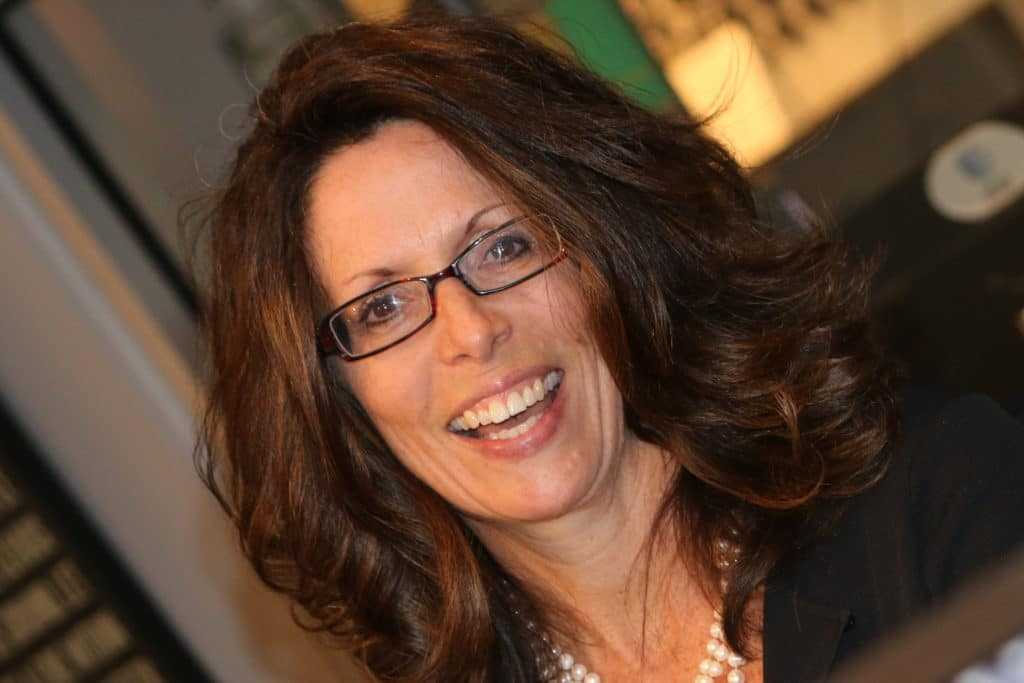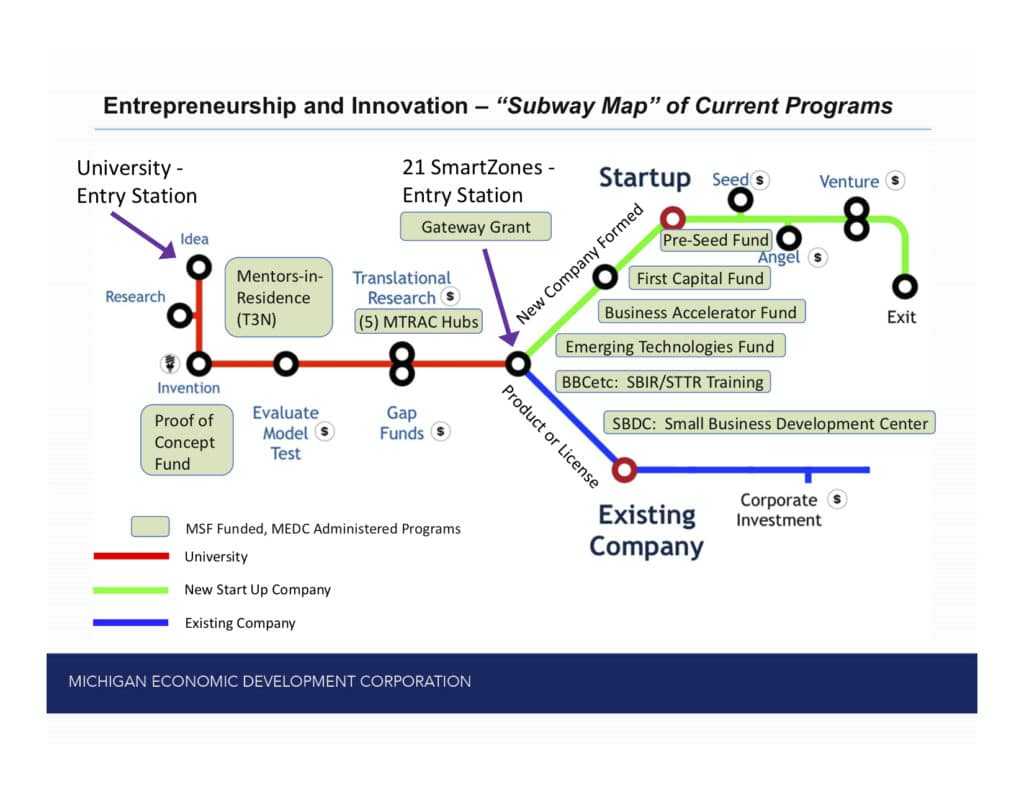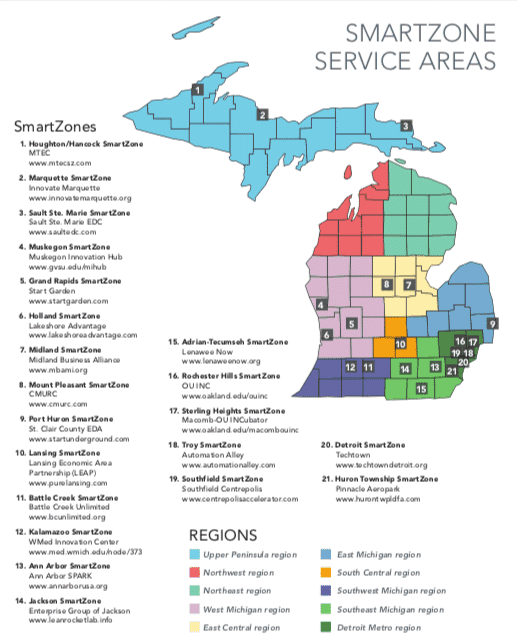Denise Graves is Director of University Relations for the MEDC.
How The Michigan Economic Development Corporation Helps Companies Get Started
Denise Graves is the University Relations Director for Entrepreneurship & Innovation at the Michigan Economic Development Corporation. She oversees statewide early-stage funding programs, working closely with universities to get inventions out into industry. We've known the MEDC was supporting revitalizing the Michigan economy for years, but recently we ran into Graves at a university entrepreneurial event and realized we only ever get a partial picture of how universities and startups can connect with the MEDC for business support services, and how all of this really works. We wanted to know more, and thought you might as well. Graves and her colleague, Vice President of Entrepreneurship and Innovation at the MEDC Fred Molnar, explained to Cronicle the process they go through to help support new ventures in Michigan.
A map of how the MEDC supports new ventures in Michigan.
"We're a small team, 6 of us including Denise," Molnar says. "[Graves] focuses on the university side. Our objective is to help diversify Michigan's economy. I was born and raised in Michigan and got to see the boom and bust of the auto industry. There are parts of the economy not so dependent on automotive like in west Michigan. Through tech and homegrown startups, our objective is to have startups start here in Michigan. We're hoping if they start here, they'll stay here."
Graves agrees and says her role is to support collaborations to get tech to industry from where it often starts in a research university setting in Michigan. It's not just the University of Michigan in Ann Arbor. The MEDC works with universities across the state, primarily the main research institutions like the University of Michigan, Michigan State, Wayne State, and Michigan Tech; who also support others by sharing best practices with them and mentoring them through the process of technology transfer.
"Once you have a company, SmartZones are a great place to go for additional funding and support to get to market," Graves says.
"Early matching funds, mentors in residence, and connections with venture capital and industry leaders who help founders complete important milestones and conduct the customer discovery process are just a few of the resources available to new founders to get on their feet."
How do founders connect if they're not in the university environment?
Fred Molnar. Courtesy photo.
"Universities and the private sector are 2 universes," Molnar confirms. "We're trying to bridge the gap between the two with programs like TechTransfer. Once you get to the private sector, that's where SmartZones come into play."
"A SmartZone is like an ER triage to figure out who you are and where you're at, then bring in heart specialists," Molnar says. "They make connections to programs the MEDC has, [understanding] where are you in your growth cycle, and bringing in people to help."
Molnar says they're maintaining current programming rather than growing services this year, but Graves adds that they're also ramping up Advanced Computing Hub hosted at Wayne State, which is part of the MTRAC program. If you would like to learn more about where your startup could connect with resources, you can learn more through the MEDC's resources on the department of Entrepreneurship & Innovation. Also, you can read up on Michigan Business News.




